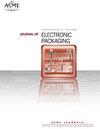电动汽车电力电子的人工智能:挑战与机遇
IF 2.3
4区 工程技术
Q3 ENGINEERING, ELECTRICAL & ELECTRONIC
引用次数: 1
摘要
电动汽车电力电子领域的进步通常是由传统的工程设计原则和经验学习驱动的。电力电子学本质上是一个多领域的领域,其中半导体物理和电气,热学和机械设计知识汇聚在一起,以实现以转换效率,功率密度和可靠性的形式实现所需目标的实际实现。由于人工智能在提供快速结果方面具有广阔的前景,工程师们开始探索人工智能如何使电力电子设备更紧凑、更可靠。在此,我们简要回顾了人工智能在电动汽车电力电子系统中的三个不同子技术:半导体器件,电力电子模块设计和预测,以及热管理设计。目的不是报告详尽的文献综述,而是确定人工智能在电力电子设计中发挥有意义作用的艺术状态和机会,以及讨论一些有前途的未来研究方向。本文章由计算机程序翻译,如有差异,请以英文原文为准。
Artificial Intelligence for Power Electronics in Electric Vehicles: Challenges and Opportunities
Progress in the field of power electronics within electric vehicles has generally been driven by conventional engineering design principles and experiential learning. Power electronics is inherently a multidomain field where semiconductor physics and electrical, thermal, and mechanical design knowledge converge to achieve a practical realization of desired targets in the form of conversion efficiency, power density, and reliability. Due to the promising nature of artificial intelligence in delivering rapid results, engineers are starting to explore the ways in which it can contribute to making power electronics more compact and reliable. Here, we conduct a brief review of the foray of artificial intelligence in three distinct sub-technologies within a power electronics system in the context of electric vehicles: semiconductor devices, power electronics module design and prognostics, and thermal management design. The intent is not to report an exhaustive literature review, but to identify the state of the art and opportunities for artificial intelligence to play a meaningful role in power electronics design, as well as to discuss a few promising future research directions.
求助全文
通过发布文献求助,成功后即可免费获取论文全文。
去求助
来源期刊

Journal of Electronic Packaging
工程技术-工程:电子与电气
CiteScore
4.90
自引率
6.20%
发文量
44
审稿时长
3 months
期刊介绍:
The Journal of Electronic Packaging publishes papers that use experimental and theoretical (analytical and computer-aided) methods, approaches, and techniques to address and solve various mechanical, materials, and reliability problems encountered in the analysis, design, manufacturing, testing, and operation of electronic and photonics components, devices, and systems.
Scope: Microsystems packaging; Systems integration; Flexible electronics; Materials with nano structures and in general small scale systems.
 求助内容:
求助内容: 应助结果提醒方式:
应助结果提醒方式:


